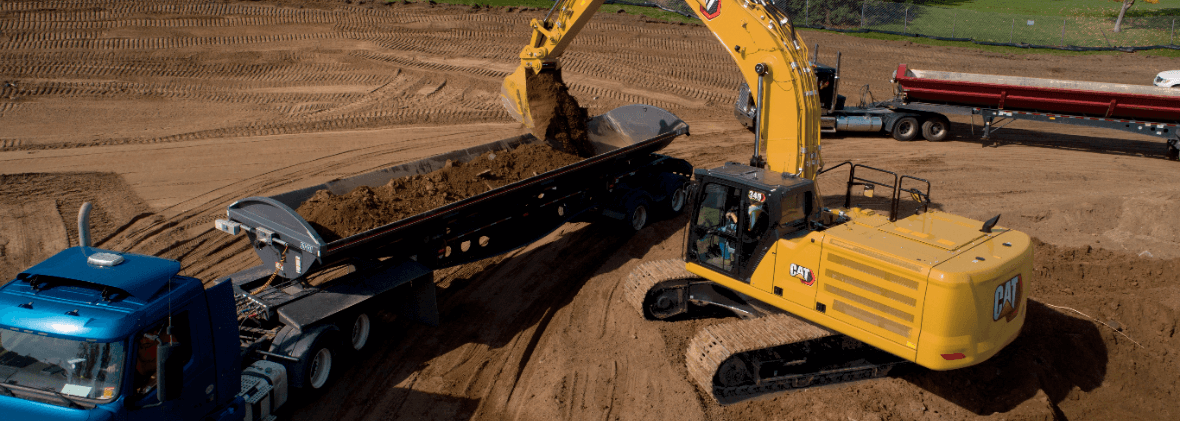
Do I Need a Permit to Rent Heavy Equipment?
Planning or executing construction projects means acquiring the appropriate permits before turning over the first shovel of dirt. While the specific requirements differ depending on the job, state and municipality, you'll likely need to obtain various building, mechanical, electrical and plumbing permits.
Do You Need a Permit to Rent Heavy Equipment?
Construction contractors often need many types of heavy equipment to manage their projects' essential digging, moving, loading and material handling functions. In many cases, renting is the most convenient and cost-effective solution for acquiring these machines. Whether you need to replace a machine temporarily or have a short-term requirement for a specific piece of equipment, a rental can keep your operations moving.
While permits are necessary for other aspects of a construction project, you won't need one to rent equipment — with some state-specific exceptions. However, you may need to supply other credentials during the rental process.
What Are the Requirements for Renting Equipment?
Use the following information to help determine what you'll need to rent equipment in your state.
Operator's License
Expect the rental company to ask for a driver's license when renting a machine, especially for dump trucks and other equipment that travels on highways. This document may also be necessary for identification purposes. Some larger, heavier machines may require a Class A commercial driver's license to meet the Federal Motor Carrier Safety Administration standards.
Some states, such as Massachusetts, impose unique licensing requirements on those renting specific equipment. For example, if you plan to rent a mini excavator or a similar machine, you'll need to apply for a temporary permit through a state-approved equipment supplier.
Training
Because of the safety risks involved with operating heavy equipment, rental companies may request proof that users have received adequate training on using certain types of machinery to ensure compliance with Occupational Safety and Health Administration guidelines.
Depending on the machine type, you may also need a certification before operating it. Many rental companies offer classes that lead to certification. This training may occur at the dealership, the renter's location or the job site.
Insurance
A reputable equipment rental provider will only allow you to take the machine from their property if you show acceptable proof of insurance. This coverage is essential for protecting the rental company's interests and yours in the event of an accident, theft, injury or damage.
General liability insurance is essential for safeguarding your assets if you're involved in an accident involving property damage or bodily injury while operating the equipment. An inland marine policy enables you to replace a damaged or stolen machine after paying a deductible. The rental agreement will specify the required coverage, so review it carefully.
If you need insurance, you can purchase it from a commercial carrier. Depending on the rental provider you choose, they may also offer coverage for an additional cost.
What Should You Do Before Renting Heavy Equipment?
Following these steps before contacting a rental company can enhance the experience and ensure a seamless process:
- Assess your operators' skills and experience: If your crews are unfamiliar with a machine you're thinking of renting, you may need to provide training and certification opportunities to bring them up to speed. The rental company may require completing this step, and it reduces the risk of job site accidents. Check whether the equipment requires a CDL to operate and ensure that only team members who possess this license will use the machine.
- Learn the requirements for your state: Since licensing and permit requirements vary, familiarize yourself with the guidelines for your state and jurisdiction.
- Update your insurance: Review your current insurance policies to determine the amount and type of coverage they provide for equipment rentals. You may also want to contact your commercial insurance agent or broker for recommendations.
- Choose the right rental company: The rental company you select should offer affordable rates and have an excellent reputation with companies in your industry. They should also provide straightforward answers to questions regarding licensing, training and other issues that impact your business.
The Cat® Rental Store Has the Answers
The Cat® Rental Store is a reliable source for high-performing heavy equipment rentals in your area. Our fleet includes machines from Caterpillar available at budget-friendly rates. We're also available to answer all your questions about the rental process, helping to ensure you have everything you need before moving forward.
Check out our equipment lineup and make your selection. You can start the process 24 hours a day by calling us at 1-800-RENT-CAT to speak to a rental specialist or contact us online to request pricing information.
Find The Cat Rental Store Near You